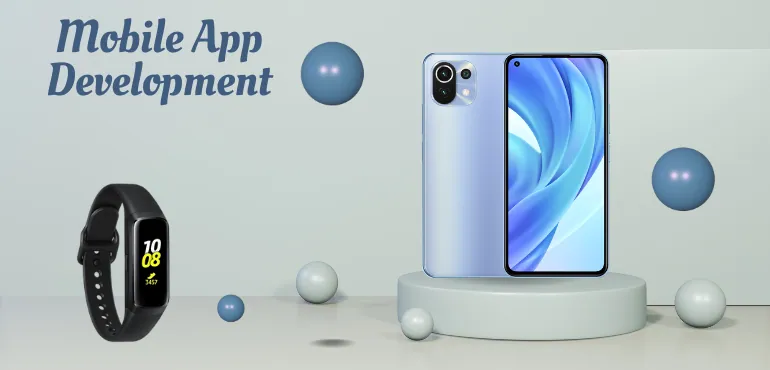There is no item in your cart
- We are creative, ambitious and ready for challenges!Hire Us
Mobile App Development
Mobile App Development
Mobile App Development
- Client: John Amanda
- Category: Business, Campaign
Mobile app development is a rapidly evolving field that has revolutionized the way we interact with our smartphones and tablets. With the increasing demand for mobile apps, developers are constantly looking for ways to improve the user experience and create more innovative and engaging apps. In our latest studies, we will explore the latest trends in mobile app development and highlight some of the best practices that developers should follow to create successful apps.
1. User Experience
User experience (UX) is critical to the success of any mobile app. A good UX design should be intuitive, easy to navigate, and visually appealing. Developers should conduct user testing to ensure that their apps are user-friendly and meet the needs of their target audience.
2. Cross-Platform Development
Cross-platform development is becoming increasingly popular as developers look for ways to reach a wider audience. Cross-platform development allows developers to create apps that can run on multiple operating systems, such as iOS and Android. This approach reduces development time and costs while increasing the reach of the app.
3. Cloud Integration
Cloud integration is another trend in mobile app development. Cloud technology allows developers to store data and run apps on remote servers, which reduces the load on the device and improves performance. Cloud integration also provides a way to synchronize data across multiple devices, which is essential for apps that require real-time updates.
4. Artificial Intelligence
Artificial intelligence (AI) is a rapidly growing field that is transforming mobile app development. AI can be used to create smarter apps that can learn from user behavior and provide personalized recommendations. AI can also be used to automate tasks, such as customer service and data analysis.
5. Internet of Things
The Internet of Things (IoT) is another trend that is driving mobile app development. IoT refers to the network of physical devices, vehicles, and other objects that are embedded with sensors, software, and connectivity. Mobile apps can be used to control IoT devices, such as smart home appliances and wearable devices.
6. Augmented Reality
Augmented reality (AR) is a technology that overlays digital information on the real world. AR is becoming increasingly popular in mobile app development, particularly in gaming and entertainment apps. AR can also be used in education and training apps to provide interactive and immersive experiences.
7. Security
Security is a critical consideration in mobile app development. Developers should follow best practices to ensure that their apps are secure and protect user data. This includes encrypting data, using secure authentication methods, and regularly updating the app to fix security vulnerabilities.
8. App Store Optimization
App store optimization (ASO) is the process of optimizing mobile apps to rank higher in app store search results. ASO involves optimizing the app’s title, description, keywords, and other elements to improve visibility and attract more downloads. ASO is becoming increasingly important as competition in the app market increases.
9. Push Notifications
Push notifications are a powerful tool for engaging users and increasing app retention. A well-designed push notification strategy can increase user engagement and retention, while a poorly designed strategy can lead to user frustration and app abandonment.
10. Monetization
Monetization is a critical consideration for mobile app developers. There are several ways to monetize mobile apps, including in-app purchases, subscriptions, and advertising. Developers should carefully consider their monetization strategy and ensure that it aligns with the needs of their target audience.
11. Agile Development
Agile development is a methodology that emphasizes flexibility and collaboration in the development process. Agile development can help developers to iterate quickly and respond to changing market conditions. Agile development is becoming increasingly popular in mobile app development.
12. Continuous Improvement
Finally, continuous improvement is essential to the success of any mobile app. Developers should regularly update their apps to fix bugs, improve performance, and add new features. Continuous improvement can help to keep users engaged and increase app retention.
In conclusion, mobile app development is a rapidly evolving field that offers exciting opportunities for developers to create innovative and engaging apps. By following best practices and keeping up with the latest trends, developers can create successful apps that meet the needs of their target audience. Whether it’s through user experience, cross-platform development, cloud integration, artificial intelligence, or any other trend, mobile app development is sure to continue to evolve and innovate in the years to come.





